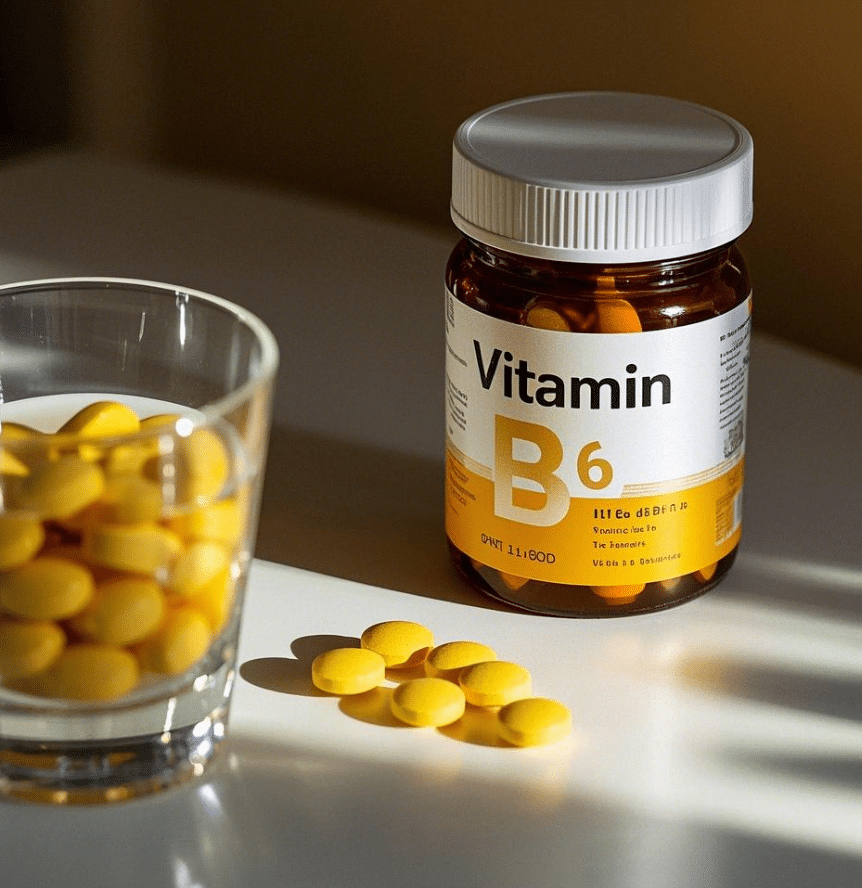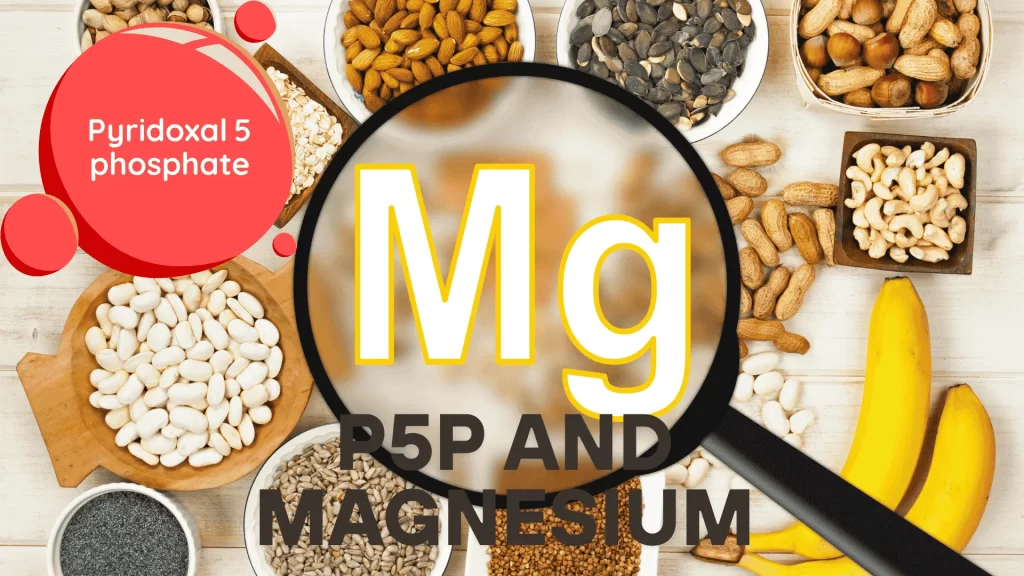Magnesium and Vitamin B Complex: Unlocking Their Health Benefits
Magnesium and B complex vitamins are powerhouse nutrients that play critical roles in maintaining overall health. Together, they offer synergistic benefits, from boosting energy to reducing anxiety. This article dives into the science of magnesium and vitamin B complex, explores their combined effects with folic acid and L-theanine, and addresses specific uses like hangover cures and anxiety relief. Below, we’ll find a clear, evidence-based guide to these nutrients, complete with a table detailing B vitamins’ roles for easy reference.
Introduction
Magnesium and vitamin B complex and magnesium together are essential for numerous bodily functions, including energy production, nerve health, and muscle function. With modern diets often lacking these nutrients, deficiencies can lead to fatigue, stress, and other health issues. This article explores the benefits of magnesium and B complex vitamins, their synergy with folic acid and L-theanine, and practical applications, such as their role in hangover cure vitamin B complex magnesium and folic acid and magnesium and vitamin B complex for anxiety. Whether you’re looking to optimize health or address specific concerns, understanding these nutrients is key.

Understanding Magnesium
Magnesium is a vital mineral involved in over 300 enzymatic reactions. It supports:
- Muscle and Nerve Function: Relaxes muscles and regulates nerve signals.
- Energy Production: Helps convert food into energy via ATP synthesis.
- Bone Health: Contributes to bone structure alongside calcium.
Dietary Sources: Leafy greens (spinach), nuts (almonds), seeds (pumpkin), whole grains, and dark chocolate.
Deficiency Symptoms: Muscle cramps, fatigue, irritability, and irregular heartbeat. Studies suggest up to 50% of adults may not meet daily magnesium needs, with recommended intakes of 310–420 mg for adults depending on age and sex.
Magnesium: Dietary Sources and Functions in the Human Body
The table below provides a detailed overview of magnesium, including its primary dietary sources and key functions in the human body. This information is based on scientific data from reputable sources, such as the National Institutes of Health (NIH), and is presented for clarity and ease of reference.
| Nutrient | Primary Dietary Sources | Key Functions in the Body |
|---|---|---|
| Magnesium | Leafy green vegetables (spinach, kale), nuts (almonds, cashews), seeds (pumpkin, sunflower), whole grains (brown rice, quinoa), legumes (black beans, chickpeas), dark chocolate (70%+ cocoa), avocados, fish (mackerel, salmon) | Supports over 300 enzymatic reactions; essential for energy production (ATP synthesis); regulates muscle and nerve function; promotes bone health by aiding calcium absorption; maintains heart rhythm and blood pressure; supports protein synthesis and DNA formation. Deficiency may lead to muscle cramps, fatigue, irregular heartbeat, or osteoporosis risk. |
Key Notes:
- Dietary Sources: Magnesium is widely available in plant-based foods, but processing (e.g., refining grains) reduces content. Fortified foods or supplements may help meet needs.
- Bioavailability: Magnesium from foods like nuts and greens is well-absorbed, though oxalate-rich foods (e.g., spinach) may slightly reduce absorption.
- Functions: Magnesium is critical for energy metabolism, nervous system regulation, and structural health (bones, muscles).
- Deficiency Risks: Low intake is common, with up to 50% of adults not meeting recommended levels (310–420 mg/day for adults). Risk factors include poor diet, alcohol use, or conditions like diabetes or gastrointestinal disorders.
- Recommended Intake: Men (19–50 years): 400–420 mg/day; Women (19–50 years): 310–320 mg/day, per NIH guidelines.
Vitamin B Complex: Dietary Sources and Functions in the Human Body
The table below provides a detailed overview of the eight B vitamins that make up the vitamin B complex, including their primary dietary sources and key functions in the human body. This information is based on scientific data from reputable sources, such as the National Institutes of Health (NIH), and is presented for clarity and ease of reference.
| Vitamin | Primary Dietary Sources | Key Functions in the Body |
|---|---|---|
| B1 (Thiamine) | Whole grains (brown rice, oats), pork, legumes (lentils, beans), seeds (sunflower), fortified cereals | Converts carbohydrates into energy; supports nerve function and muscle contraction; essential for brain health. Deficiency may lead to beriberi. |
| B2 (Riboflavin) | Dairy products (milk, yogurt), eggs, green leafy vegetables (spinach), lean meats, fortified cereals, almonds | Facilitates energy production; supports healthy skin, eyes, and mucous membranes; acts as an antioxidant. Deficiency can cause cracked lips and sore throat. |
| B3 (Niacin) | Poultry (chicken, turkey), fish (tuna, salmon), peanuts, whole grains, mushrooms, fortified foods | Supports energy metabolism; aids DNA repair and cell communication; promotes healthy skin and digestion. Severe deficiency causes pellagra (dermatitis, diarrhea, dementia). |
| B5 (Pantothenic Acid) | Meat (liver, chicken), avocados, broccoli, mushrooms, whole grains, eggs, sunflower seeds | Essential for synthesizing coenzyme A, which supports energy production; aids in hormone and cholesterol synthesis. Deficiency is rare but may cause fatigue. |
| B6 (Pyridoxine) | Bananas, potatoes, chickpeas, poultry, fish, fortified cereals, nuts (walnuts) | Supports neurotransmitter synthesis (e.g., serotonin, dopamine); aids red blood cell formation and immune function; helps metabolize proteins. Deficiency may cause depression or anemia. |
| B7 (Biotin) | Egg yolks, nuts (almonds, peanuts), salmon, avocados, sweet potatoes, cauliflower | Supports healthy hair, skin, and nails; aids in fat and carbohydrate metabolism; contributes to gene regulation. Deficiency may cause hair loss or rashes. |
| B9 (Folic Acid) | Leafy greens (spinach, kale), legumes (black beans), citrus fruits, fortified grains (bread, pasta), liver | Critical for DNA synthesis and cell division; prevents neural tube defects in pregnancy; supports red blood cell production. Deficiency can lead to megaloblastic anemia. |
| B12 (Cobalamin) | Meat (beef, liver), fish (clams, salmon), dairy products, eggs, fortified cereals, nutritional yeast | Essential for nerve health and myelin sheath formation; supports red blood cell production and DNA synthesis. Deficiency can cause neurological issues or pernicious anemia. |
Key Notes:
- Dietary Sources: Many B vitamins are found in animal products, making supplementation or fortified foods important for vegetarians and vegans, especially for B12.
- Bioavailability: Some sources (e.g., fortified cereals) may provide synthetic forms (like folic acid for B9), which are more bioavailable than natural forms.
- Functions: B vitamins often work together in metabolic pathways, particularly in energy production and nervous system health.
- Deficiency Risks: Poor diet, alcohol consumption, or medical conditions (e.g., celiac disease, pernicious anemia) can increase deficiency risks. Symptoms vary by vitamin but often include fatigue, neurological issues, or skin problems.
Deficiency Risks: Poor diet, alcohol consumption, stress, or medical conditions (e.g., celiac disease) increase risks. Vegetarians and vegans are particularly prone to B12 deficiency.
Synergistic Benefits of Magnesium and Vitamin B Complex
Magnesium and vitamin B complex benefits stem from their complementary roles. Here’s how they work together:
- Energy Production: B vitamins (especially B1, B2, B3) facilitate energy metabolism, while magnesium activates ATP, the body’s energy currency. This synergy combats fatigue.
- Nervous System Health: B6 and B12 support neurotransmitter synthesis, and magnesium calms nerve activity, reducing stress and magnesium and vitamin B complex for anxiety.
- Muscle Function: Magnesium relaxes muscles, while B vitamins aid recovery, benefiting athletes or those with cramps.
Research shows combining vitamin B complex and magnesium together enhances these effects. A 2019 study found that magnesium and B6 supplementation improved stress scores in adults with low magnesium levels.

Folic Acid, Vitamin B Complex, and Magnesium
Folic acid, vitamin B complex, and magnesium form a potent trio. Folic acid (B9) is critical for DNA synthesis and red blood cell formation, particularly during pregnancy to prevent neural tube defects. When paired with magnesium and other B vitamins, it supports:
- Cardiovascular Health: Folic acid lowers homocysteine levels, a risk factor for heart disease, while magnesium supports blood pressure regulation.
- Cognitive Function: B vitamins and magnesium enhance brain health, reducing risks of cognitive decline.
Studies suggest 400–800 mcg of folic acid daily, alongside magnesium and B complex, optimizes these benefits.
L-Theanine, Magnesium, and Vitamin B Complex
L-theanine, magnesium, and vitamin B complex are increasingly popular for stress relief. L-theanine, an amino acid found in green tea, promotes relaxation without sedation. Combined with magnesium (a natural muscle relaxant) and B vitamins (neurotransmitter supporters), this trio:
- Reduces anxiety and improves focus.
- Enhances sleep quality by calming the nervous system.
A 2020 study showed L-theanine and magnesium together improved sleep in older adults, while B6 has been linked to better mood regulation.
Magnesium and Vitamin B Complex for Anxiety
Magnesium and vitamin B complex for anxiety is a well-researched application. Magnesium modulates the HPA axis, reducing cortisol levels, while B6 and B12 support serotonin and GABA production, key for mood stability. Clinical trials indicate:
- Magnesium supplementation (300 mg/day) reduces anxiety symptoms in 6–8 weeks.
- B6 (50–100 mg/day) enhances mood in individuals with low levels.
Combining these nutrients offers a natural approach to managing anxiety, especially for those with deficiencies.
Hangover Cure: Vitamin B Complex, Magnesium, and Folic Acid
Alcohol depletes hangover cure vitamin B complex magnesium and folic acid levels, contributing to hangover symptoms like fatigue, nausea, and headaches. Here’s how these nutrients help:
- Magnesium: Restores electrolyte balance, easing headaches and muscle aches.
- B Vitamins: Replenish energy metabolism (B1, B3) and support liver detoxification.
- Folic Acid: Counteracts alcohol-induced folate depletion, aiding recovery.
Anecdotal evidence and small studies suggest taking 300 mg magnesium, a B-complex supplement, and 800 mcg folic acid before or after drinking may reduce hangover severity. Hydration and rest remain crucial.
Health Conditions Addressed
Beyond anxiety and hangovers, magnesium and B complex vitamins benefit:
- Sleep Disorders: Magnesium and B6 improve melatonin production, aiding insomnia.
- Cardiovascular Health: Magnesium lowers blood pressure; folic acid and B12 reduce homocysteine.
- Migraines: Magnesium (400–600 mg/day) reduces frequency; B2 (400 mg/day) shows promise.
- Muscle Cramps: Magnesium relaxes muscles; B vitamins support nerve health.
A 2021 meta-analysis confirmed magnesium’s efficacy for migraines, while B2 is endorsed by the American Academy of Neurology for prevention.
Practical Applications and Supplementation
Recommended Intakes:
- Magnesium: 310–420 mg/day (adults). Forms: citrate (bioavailable), glycinate (gentle on stomach).
- B Vitamins: Vary by vitamin (e.g., B6: 1.3–2 mg; B12: 2.4 mcg). Choose a balanced B-complex.
- Folic Acid: 400–800 mcg/day.
- L-Theanine: 100–200 mg/day for stress or sleep.
Best Practices:
- Take with meals to enhance absorption.
- Magnesium at night may aid sleep; B vitamins in the morning for energy.
- Check for interactions (e.g., magnesium with antibiotics; B6 with certain antidepressants).
- Consult a doctor, especially if pregnant, on medications, or with kidney issues.
Supplements: Look for third-party tested products (e.g., USP or NSF certified) to ensure quality.
Potential Side Effects and Precautions
- Magnesium: Overdose (>1,000 mg/day) may cause diarrhea, low blood pressure, or kidney strain. Avoid high doses with renal issues.
- B Vitamins: Excess B6 (>200 mg/day) can cause nerve damage; excess niacin may cause flushing.
- Folic Acid: High doses (>1,000 mcg) may mask B12 deficiency.
- L-Theanine: Generally safe but may cause drowsiness in high doses.
Always start with recommended doses and monitor for side effects.
Daily Recommended Dietary Allowances (RDA) for Vitamin B Complex for Men and Women
The table below details the Recommended Dietary Allowances (RDA) for each vitamin in the B complex for adult men and women, as established by the National Institutes of Health (NIH). These values apply to healthy adults aged 19–50 years unless otherwise noted. For pregnant or lactating women, requirements may differ (not included here for brevity). The values are expressed in milligrams (mg), micrograms (mcg), or other units as appropriate.
| Vitamin | Men (19–50 years) | Women (19–50 years) | Notes |
|---|---|---|---|
| B1 (Thiamine) | 1.2 mg | 1.1 mg | Supports energy metabolism; higher needs with high-carb diets. |
| B2 (Riboflavin) | 1.3 mg | 1.1 mg | Essential for energy production; needs increase with physical activity. |
| B3 (Niacin) | 16 mg NE | 14 mg NE | NE = Niacin Equivalents; supports skin and nerve health. |
| B5 (Pantothenic Acid) | 5 mg (AI) | 5 mg (AI) | AI = Adequate Intake (no RDA set); widely available in foods. |
| B6 (Pyridoxine) | 1.3 mg | 1.3 mg | Increases to 1.7 mg for men and 1.5 mg for women over 50. |
| B7 (Biotin) | 30 mcg (AI) | 30 mcg (AI) | AI used; deficiency rare due to gut bacteria production. |
| B9 (Folic Acid) | 400 mcg DFE | 400 mcg DFE | DFE = Dietary Folate Equivalents; critical for DNA synthesis. |
| B12 (Cobalamin) | 2.4 mcg | 2.4 mcg | Absorption may decrease with age; vegans need supplements. |
Key Notes:
- RDA vs. AI: RDA is the average daily intake sufficient to meet the nutrient requirements of nearly all (97–98%) healthy individuals. AI (Adequate Intake) is used when insufficient evidence exists to establish an RDA (e.g., B5, B7).
- DFE for Folic Acid: Accounts for differences in absorption between natural folate and synthetic folic acid (1 mcg DFE = 1 mcg food folate = 0.6 mcg synthetic folic acid from supplements).
- Sources: Values are sourced from the NIH Office of Dietary Supplements (2023).
- Special Considerations: Men and women with specific conditions (e.g., alcoholism, malabsorption disorders) or lifestyles (e.g., veganism) may require higher intakes or supplementation. Consult a healthcare provider for personalized advice.
Conclusion
Magnesium and B complex vitamins offer remarkable benefits, from energy and muscle support to anxiety relief and hangover recovery. Adding folic acid and L-theanine amplifies their effects, making them a versatile solution for modern health challenges. Prioritize nutrient-rich foods like greens, nuts, and whole grains, and consider supplements if needed. Consult a healthcare provider to tailor intake to your needs, ensuring optimal health with vitamin B complex and magnesium together.
FAQs.
Can you take magnesium and vitamin B complex together
Yes, magnesium and vitamin B complex can be taken together safely and often work synergistically. Magnesium supports energy production alongside B vitamins, and studies show combining them can reduce stress and improve mood. Take with food to enhance absorption and consult a doctor if on medications.
What is magnesium complex vitamin B good for?
Magnesium and vitamin B complex benefit energy production, nerve health, muscle function, and stress reduction. They help combat fatigue, support heart health, reduce anxiety, and may improve sleep. They’re also used for migraine prevention and hangover recovery when paired with folic acid.
What vitamins should not be taken with magnesium?
Magnesium generally pairs well with most vitamins. However, high doses of calcium or zinc may compete for absorption, so space them out by 2–4 hours. Vitamin D enhances magnesium absorption, making it a good combination. Always check with a healthcare provider for personalized advice.
What cannot be taken with B complex?
B complex is safe with most supplements but may interact with certain medications, like levodopa (for Parkinson’s) or antibiotics (e.g., tetracyclines). Avoid taking B6 with anticonvulsants, as it may reduce their effectiveness. Consult a doctor if on medications or taking high doses.
Can I take magnesium and B complex at night?
Yes, taking magnesium and B complex at night is safe and may promote relaxation. Magnesium (e.g., glycinate) can improve sleep, while B6 supports melatonin production. However, some find B vitamins energizing, so monitor effects and consider morning doses if daytime alertness is preferred.
Does vitamin B help with anxiety?
Yes, vitamin B can help with anxiety, particularly B6, B9 (folic acid), and B12, which support neurotransmitter production (e.g., serotonin, GABA). Studies show B6 supplementation (50–100 mg/day) reduces anxiety symptoms, especially when combined with magnesium.
Is it better to take B12 or B complex?
It depends on your needs. If you’re deficient in B12 (common in vegans or older adults), a standalone B12 supplement (2.4 mcg/day) is sufficient. B complex is better for overall energy, nerve health, and addressing multiple B vitamin deficiencies, as the vitamins work together. Consult a doctor for blood tests to confirm needs.
Which magnesium is best for sleep and anxiety?
Magnesium glycinate is best for sleep and anxiety due to its high bioavailability and calming effects on the nervous system. Magnesium citrate is also effective but may cause digestive upset in some. Doses of 200–400 mg at night are typically recommended.
How to know magnesium deficiency?
Symptoms of magnesium deficiency include muscle cramps, fatigue, irritability, irregular heartbeat, and poor sleep. Risk factors include low intake of nuts, greens, or whole grains, or conditions like diabetes. Blood tests (serum magnesium) can confirm deficiency, though levels may not always reflect total body stores. Consult a doctor for diagnosis.
Do B vitamins affect magnesium?
B vitamins and magnesium interact positively, as B6 enhances magnesium absorption in cells. No evidence suggests B vitamins deplete magnesium; instead, they often complement each other in energy metabolism and stress relief. Balanced intake of both is ideal.
What is the best time to take vitamin B complex?
The best time to take vitamin B complex is typically in the morning with food to maximize absorption and leverage their energizing effects. However, if targeting sleep benefits (e.g., with B6), nighttime dosing may work for some. Avoid taking on an empty stomach to prevent nausea.
References
- National Institutes of Health. (2023). Magnesium: Fact Sheet for Health Professionals. https://ods.od.nih.gov/factsheets/Magnesium-HealthProfessional/
- National Institutes of Health. (2023). Vitamin B Complex: Fact Sheet for Health Professionals. https://ods.od.nih.gov/factsheets/VitaminB6-HealthProfessional/
- Botturi, A., et al. (2019). “The role of magnesium and vitamin B6 in stress management.” Nutrients, 11(8), 1846.
- Kimura, K., et al. (2020). “L-theanine and magnesium for sleep improvement.” Journal of Sleep Research, 29(4), e12962.
- Li, Z., et al. (2021). “Magnesium for migraine prevention: A meta-analysis.” Headache, 61(3), 409–418.
- American Academy of Neurology. (2019). Guideline: Preventive Treatment of Migraine. https://www.aan.com/Guidelines/home/GuidelineDetail/964


